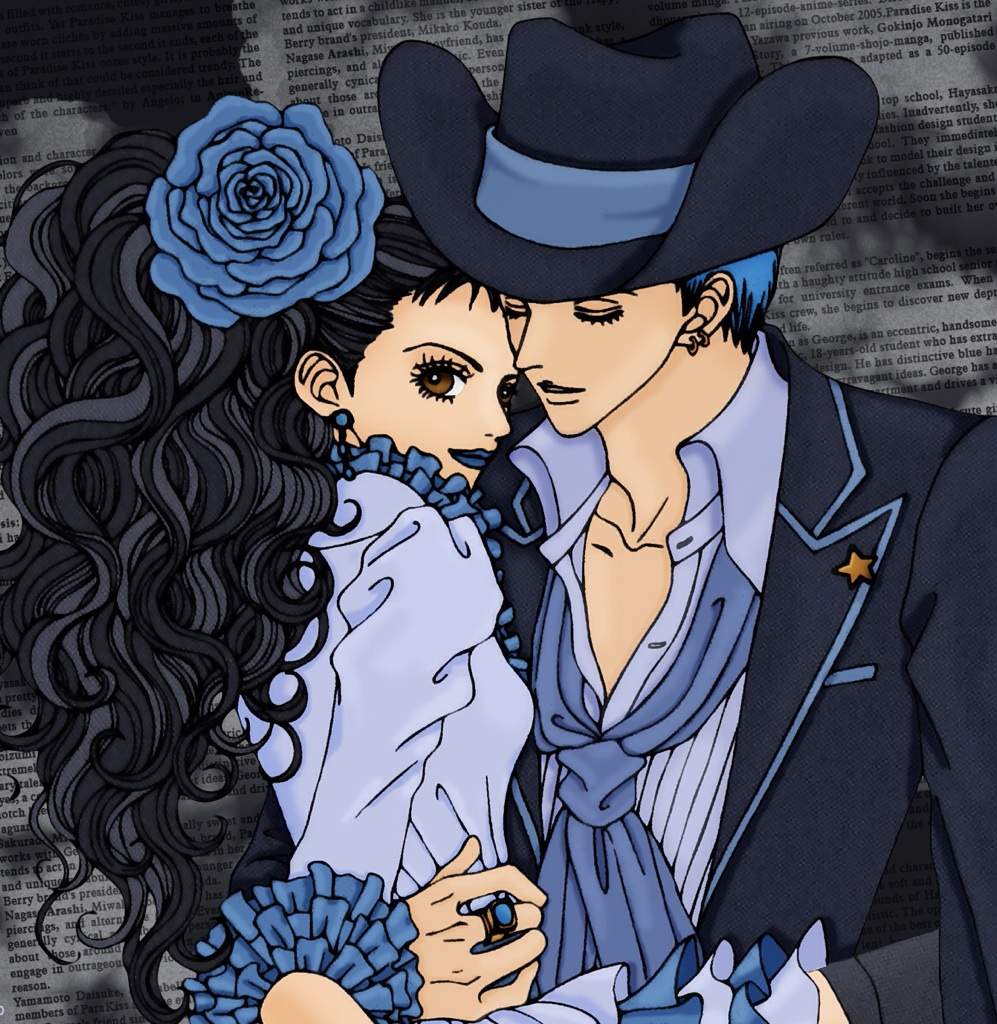
Before Yukari got mixed up with George, she was attracted to a classmate, Hiroyuki - as nice and straight-laced as George is adventurous and provocative. Yes, a grownup, like these odd folks in outlandish clothes who do in fact take their adult responsibilities seriously even if they don’t look the part.Īnother key element of Yukari’s maturation comes through when Miwako reveals herself to be part of a love triangle taking place in another part of Yukari’s life.

What’s the sense in “growing up” if you’re not going to do it all the way, and do it the right way? He makes this point not just once but many times, and soon she has a choice: she can either be a “good girl” (and a fake one at that), or an actual grownup who takes human relationships seriously. If she really wants to be an independent girl, as per all the noise she’s been making in such a direction, she needs to do it aboveboard and honestly. Yukari discovers, to her stupefaction, that no, George isn’t going to lie for her sake. Then comes one of the many little things that show the story is only interested in “romance” as a starting point and not a destination. What comes next is more than a little surprising: at one point she is compelled to lie to her mother about what she’s been up to lately, and attempts to enlist George in the lie (as Mom would blow a gasket if she found out her daughter was spending time with a boy, let alone the likes of George). Yukari is drawn to George while at the same time having her patience tested by him, and so her attention drifts further from her studies, and from the goody-twoshoes life she’s been living up to this point. The ingredients all seem to be appropriate to the formula.
Paradise kiss cracked#
(Such icy attitude is, as anyone who has read more than two romances in their life knows, merely a façade to be cracked open by the right girl.) She grows particularly close to Miwako, the baby of the bunch, whose bubbly cheer and little-girl mannerisms stand in stark contrast to George’s haughty, detached, and presumptuous attitude. She doesn’t think she has time for a bunch of oddballs who dork around with sewing machines, but a little of their company helps her realize they take their work quite seriously … and whaddaya know, she really does look good in one of their outfits. It’s up to George, the lead designer for this group (the “Paradise Kiss” of the title), to lure Yukari back into their fold, kicking and screaming. Well, she would have spurned the bunch of them, if she hadn’t stupidly left her school ID in their “Atelier”, or workshop / hangout space. Anything that throws her out of her nice, comfortable little rut is bad news … such as, oh, being accosted on the street by some folks with outlandish clothing and ‘dos, and being told, hey, you’re really pretty, how’d you like to model for us? Yukari, not being born yesterday, immediately assumes something vile is afoot, and spurns the bunch of them. She’s cramming so frantically for her college entrance exams, everything else has temporarily ceased to exist - including any sense of where her life would go after all that folderol is over and done with. The first time ever I saw your face, I wanted to smack itĬhief among those people is Yukari Hayasaka, the high-school girl stuck in the tunnel vision so common to people her age.

None of this comes without a few bumps, of course, and half the fun is watching the people in question hit those bumps and bang their heads on the ceiling.
Paradise kiss how to#
This is one of those stories where people who are a bit prickly on the outside but basically good on the inside learn how to selectively shed the eccentricities they used to keep the world at bay, and let someone else’s sunshine in. If anything, the story ennobles the label. It begins and remains firmly in romance territory, but that label doesn’t come to work against it. Case in point: Ai Yazawa’s Paradise Kiss. The very best of shojo manga operates, at least at first, in territory I might never have walked into under my own power. It’s a shame, because within any genre there is always the possibility for happy accidents and lively discovery. In other words, a genre is a label for a specific kind of suspension of disbelief, and that may explain why many people turn their nose up at certain genres.

Romance is a label we associate freely with broad brushstrokes of emotion (e.g., hate-that-is-actually-love), coincidence, and a great many other things we’d only tolerate in small doses, if at all, in something not sporting that label. A book bearing the label science fiction earns certain exemptions of tone and content right out of the gate that a book labeled fantasy or romance or literary fiction does not. It’s been said that genres are reading instructions.


 0 kommentar(er)
0 kommentar(er)
